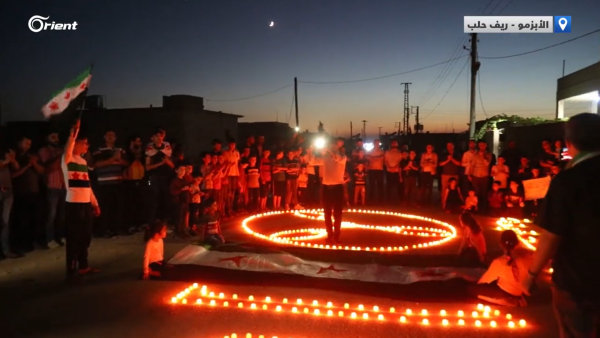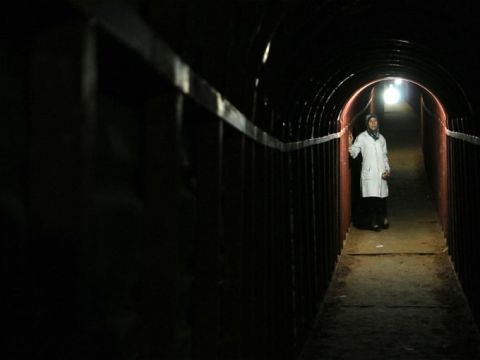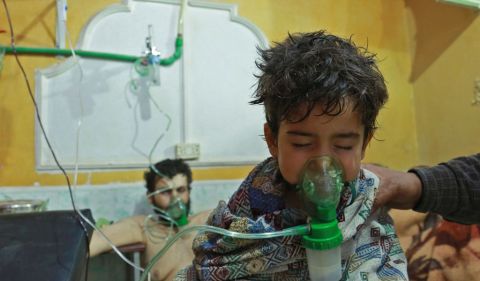ALBAWABA - In light of the 10th anniversary of one of the most horrific chemical attacks on civilians in modern history, residents of Ghouta district of Damascus in Syria light 1,400 candles remembering the lives lost in the sarin gas attack in 2013.
Ten years ago, early in the morning of August 21, 2013, the Assad regime released the nerve agent sarin on Syrian civilians in the Ghouta district of Damascus, killing more than 1,400 people — many of them children.
Since the early days of the Syrian revolution back in 2011, the residents of Eastern Ghouta have announced their full support of the Syrian revolutionary cause and the consequent armed rebellion against the Assad regime and its allies.
Nearly two years into the revolution, Ghouta was imposed under a brutal siege by the Assad regime forces as its people refused to defer to the government, as the regime collectively punished the civilians living there. The regime also routinely bombarded the area with airstrikes and artillery fire, often killing many civilians.
As Nour Aden, an activist who survived Ghouta recounted: "You hear the planes come and you fear the bombing. But the chemicals are silent. You don’t know you’re dying until you can smell it and then it is too late".
The day of the Ghouta massacre
Residents in Ghouta woke up, in the early hours of August 21, to an alert of an air raid, which they thought would be the usual waves of airstrikes they have been battling for almost two years at the time.
However, survivors of the attack described it as unlike most air strikes, this one was not accompanied by the noises of missiles and the resulting explosions.
A few hours later, Ghouta's medical facilities were overwhelmed by hundreds of patients being brought in with no visible symptoms of harm, despite the fact that these were the types of battle and trauma injuries that the health workers were used to seeing. Instead, these individuals were having convulsions, suffocating, coughing up blood, foaming at the mouth, and dying.
Experts eventually determined that these people had been subjected to the atrocities of sarin gas, which had been deliberately launched into civilian neighborhoods of Ghouta by al-Assad regime forces.
The world woke up the following day to images and videos of stacks of dead bodies being kept in makeshift morgues put up to deal with the extraordinary overflow of bodies in less than 24 hours.
International reactions
Following the attack, there was tremendous global outrage and horror at the scenes emerging from Ghouta. However, the world community swiftly turned a blind eye to al-Assad's crimes, allowing him to get rid of one particularly horrific piece of his armory while letting his conventional murder continue. However, it did not even exclude Damascus' deployment of chemical weapons.
Written by: Batool Darweesh









